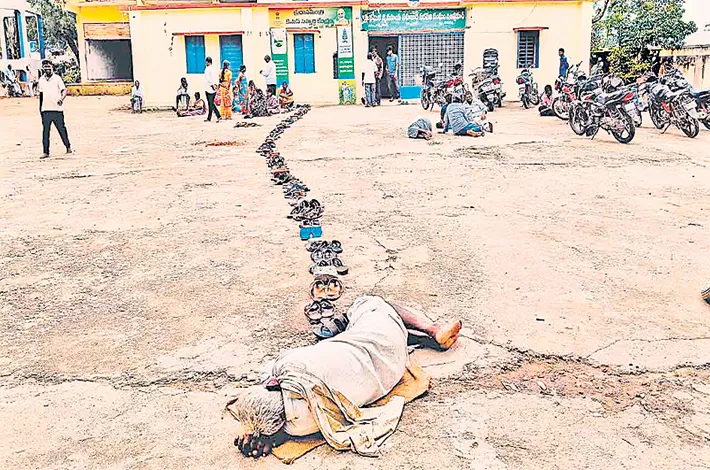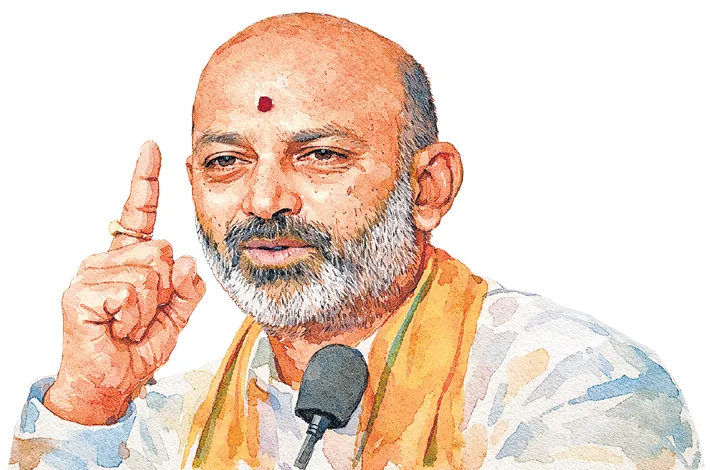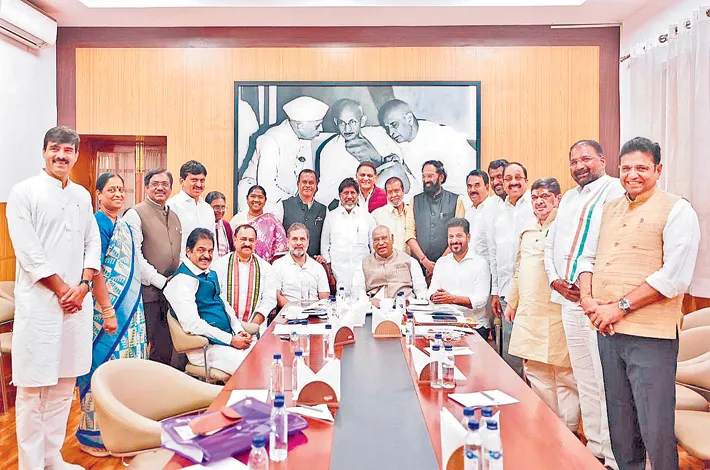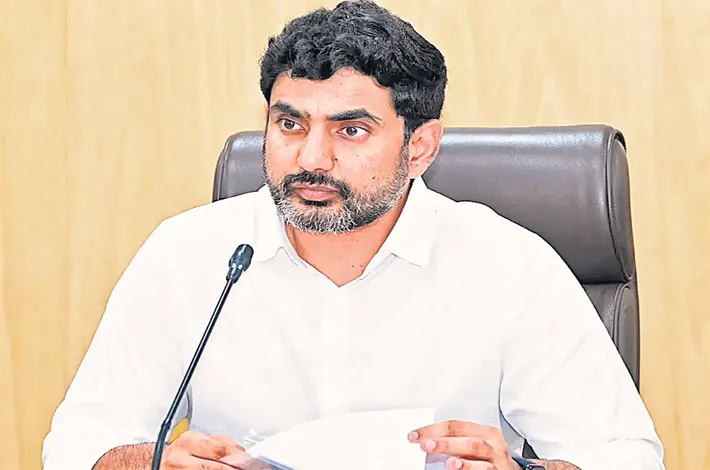Farmers in Distress
05-10-2025 12:00:00 AM

A Ticking Time Bomb for Congress in Local Polls
metro india news I hyderabad
As the monsoon recedes and Kharif paddy crop cutting begins across Telangana's fertile fields, a storm of discontent is brewing among the state's 60 lakh farmers. The Congress-led government, in power for nearly two years, faces mounting criticism over a crippling urea shortage and delays in disbursing promised bonuses for fine paddy varieties, locally known as Sanna rice. These twin crises have left farmers disillusioned, forcing many to sell their produce at distress prices to private traders, eroding trust in Chief Minister A. Revanth Reddy's administration. With local body elections looming in early 2026, this agrarian unrest could prove catastrophic for the ruling party, handing ammunition to opposition outfits like the Bharat Rashtra Samithi (BRS) and Bharatiya Janata Party (BJP).
Urea Shortage
The urea saga exemplifies the government's logistical failures. Despite the Centre allocating 9.8 lakh metric tonnes (MT) for the Kharif 2025 season – of which 8.3 lakh MT had been supplied by late August – farmers report acute shortages at the ground level. Long queues snake outside Primary Agricultural Centres (PACs), with distraught growers waiting overnight in the September chill for a single 45-kg bag. In Mancherial district, videos captured farmers camping on streets from 2 a.m., only to return empty-handed, their crops at risk of nutrient stress and pest attacks. One viral clip from Shatrajupalli village showed fellow farmers gifting a urea sack as a birthday present to a colleague, underscoring the desperation.
Agriculture Minister Tummala Nageswara Rao claimed the state received 0.24 lakh tonnes more than allotted in September, totaling 7.88 lakh tonnes from April to September 25. Yet, Revanth Reddy himself admitted distribution bottlenecks, blaming "impatience and instigation" for the chaos in Kamareddy. Critics, including BRS Working President K.T. Rama Rao, point to poor planning: unlike the previous BRS regime, which stocked buffers during off-seasons, the Congress government failed to anticipate peak July-August demand. A 46-day shutdown at Ramagundam Fertilizers and Chemicals Ltd (RFCL) exacerbated the shortfall, causing a 1.77 lakh MT production loss worth Rs 120 crore. Black market premiums have surged to Rs 500-600 per bag, pushing input costs up by 20-30% and threatening yields in a season already hampered by erratic rainfall. Protests erupted in Adilabad and Nalgonda, with police resorting to lathis, further alienating the rural vote bank that propelled Congress to power in 2023.
Unresolved Bonus issue Compounding the fertilizer woes is the unresolved bonus imbroglio for Sanna rice – premium fine varieties like Samba Mashuri and Swarna that dominate Telangana's 18 lakh hectares under paddy.
For the Rabi 2024-25 season, the government pledged Rs 500 per quintal over the Minimum Support Price (MSP) of Rs 2,183 for common paddy, incentivizing cultivation and spurring a record 23 lakh MT procurement by January. This bonus, totaling Rs 432 crore, was hailed as a farmer-friendly move, boosting acreage by 15% and earning the administration plaudits. However, payments remain stalled two months after procurement ended in May, affecting over four lakh growers who supplied 43.10 lakh MT – a 44% jump from the previous year.
BRS leader T. Harish Rao slammed the delay as a "betrayal," noting farmers' mounting debts from high input costs. BJP MP Bandi Sanjay Kumar accused the government of stalling to evade the payout, echoing 2024 allegations. The fallout is stark: disillusioned farmers, fearing a repeat for Kharif 2025-26, are bypassing state procurement centers, which haven't opened despite crop cutting underway in Warangal and Khammam. Private traders are swooping in, offering Rs 1,900-2,000 per quintal – a Rs 500-700 shortfall from MSP-plus-bonus – leading to losses of Rs 10,000-15,000 per acre. Reports of outright cheating abound, with millers vanishing after partial payments.
Ironically, this reverses a pre-2023 trend where Karnataka and Tamil Nadu traders smuggled Sanna rice into Telangana for the lucrative bonus, prompting checkpost crackdowns. Now, those same traders eye Telangana's undervalued harvest, potentially flooding neighboring markets and deepening local distress. A nationwide paddy glut, with prices dipping below MSP amid bumper forecasts of 171.39 MT for Kharif 2025-26, amplifies the pain.
Unseasonal rains
To compound the problems of farmers is the heavy rain fall received recently. It has resulted in lakh of acres submerged in the rain water damaging the crops.About 2.36 Lakh acres was damaged in the rains. The government has decided to grant ex gratis amount of Rs 10,000 per acre which is nominal and no where off set the losses. The Centre’s fatal Bhima also not given to farmers. The Rs 10,000 per acre compensation is not sufficient as farmers spend Rs 40,000 per acre for Paddy, Rs 45,000 per acre for Cotton, Rs 38,000 per acre for Maize. Hence there is no match between what the farmers lost and the compensation given by the government.
Political damage
Politically, these missteps ring danger bells for Congress. The party's 2023 victory hinged on six "guarantees," including farmer support, but unfulfilled promises have fueled BRS's resurgence. X (formerly Twitter) buzzes with hashtags like #CongressFailedTelangana, where farmers lament, "We never faced this under KCR." Irrigation Minister N. Uttam Kumar Reddy recently urged the Centre for higher procurement targets and storage easing, signaling internal panic.still, without swift action – like releasing Rabi bonuses and operationalizing 1,000+ procurement centers by mid-October – the ripple effects could cost Congress dearly in panchayat polls, where rural seats dominate. Congress elected representatives like Sarpanches, MPTCs and others are worried that they may have to face wrath of farmers over these issues.
In a state where agriculture employs 55% of the workforce and contributes 18% to GSDP, ignoring this distress invites electoral backlash. The bonus scheme, once a badge of honor, now symbolizes broken vows. As one Adilabad farmer told reporters, "We voted for change; now we're changing markets to survive." Unless Revanth Reddy reallocates funds – perhaps from the Rs 2,500 crore Rythu Bandhu outlay – and streamlines supply chains, Telangana's green revolution risks turning red with rage.








